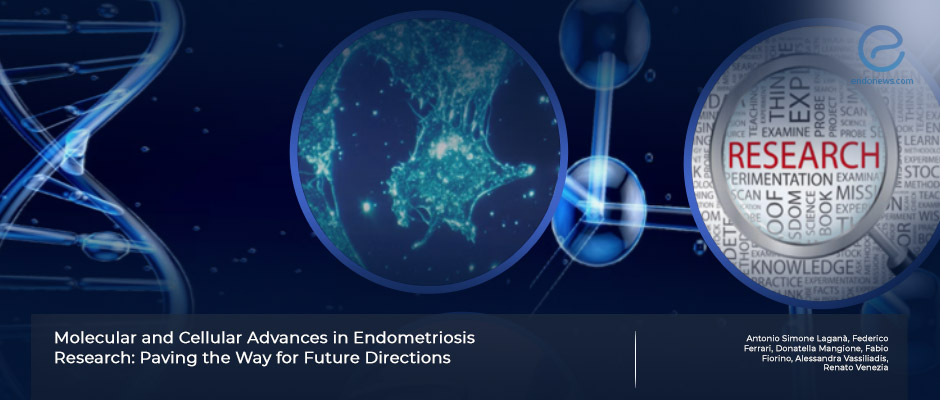New developments in endometriosis from a molecular and cellular standpoint
Dec 6, 2023
Ongoing research identifies various molecular pathways and cellular markers in endometriosis
Key Points
Highlight:
- Significant progress has been made in identifying new molecular pathways and changes showcasing different cellular markers in patients with endometriosis.
Importance:
- As common as it is, endometriosis still has various features waiting to be discovered in its etiopathogenesis.
- Researchers from all around the world have been putting a lot of effort into looking out for more answers to the unknown questions about endometriosis.
What’s done here:
- Laganà et al. from Italy wrote an editorial summarising the newly discovered molecular and cellular developments in endometriosis.
Key results:
- Specific genes and proteins were discovered regarding integrated signaling pathways involved in endometriosis, such as epithelial-mesenchymal transition and various cellular signaling pathways.
- Different subtypes of endometriosis were shown to exhibit altered gene and microRNA expression which were related to adhesion and apoptosis pathways.
- Regarding the immune environment, decreased concentrations of ghrelin, GLP-1, glucagon, and visfatin in the peritoneal fluid of women with endometriosis were found.
- PD-L1 and PD-L2 concentrations were found to be higher in the peritoneal fluid suggesting a possible link with carcinogenesis.
- Fibronectin levels were found to be higher in the plasma and peritoneal fluid of women with endometriosis which indicates the possibility of using fibronectin as a marker.
Lay Summary
Researchers are making significant progress in endometriosis regarding molecular and cellular research, with collaborative efforts by clinicians, scientists, surgeons, and biostatisticians. Laganà et al. from Italy wrote an editorial regarding the recent special issue called "Molecular and Cellular Advances in Endometriosis Research 2.0" which was published in the August 2023 issue of the International Journal of Molecular Sciences showcasing noteworthy articles that highlight progress in understanding and addressing endometriosis.
The authors mentioned the different molecular pathways discovered when comparing the eutopic and ectopic endometrium in women with endometriosis. Epithelial-mesenchymal transition and various cellular signaling pathways were among the integrated signaling pathways involved in endometriosis. It is emphasized that in distinguishing between different types of endometriosis, it is crucial to differentiate differences between eutopic and ectopic endometrium. A study highlighting how distinct phenotypes of endometriosis exhibit altered gene and microRNA expression related to adhesion and apoptosis pathways is mentioned.
The role of the immune microenvironment has been thought to be important in every stage of endometriosis. Researchers found decreased concentrations of ghrelin, GLP-1, glucagon, and visfatin in the peritoneal fluid of women with endometriosis, suggesting a potential connection between immune factors and disease development. Additionally, there were observations of the role of macrophages in areas with endometriosis-related changes. PD-L1 and PD-L2 concentrations were found to be higher in the peritoneal fluid suggesting a possible link with carcinogenesis. The authors also talked about the major challenge of developing early and non-invasive diagnostic strategies for endometriosis. The use of fibronectin as a potential marker, with higher concentrations found in the plasma and peritoneal fluid of women with endometriosis was discussed.
It is concluded that these molecular and cellular advances have the potential to reduce diagnostic delays associated with endometriosis, a problem exacerbated by the COVID-19 pandemic and a new edition featuring the best research on this subject will be published in the future.
Research Source: https://pubmed.ncbi.nlm.nih.gov/37628844/
endometriosis research molecular pathways fibronectin PD-L1 Ghrelin

